The last half: A review of the ProTour teams' seasons
What was the last half of the 2008 season like for the 18 ProTour teams, and how did the whole year...
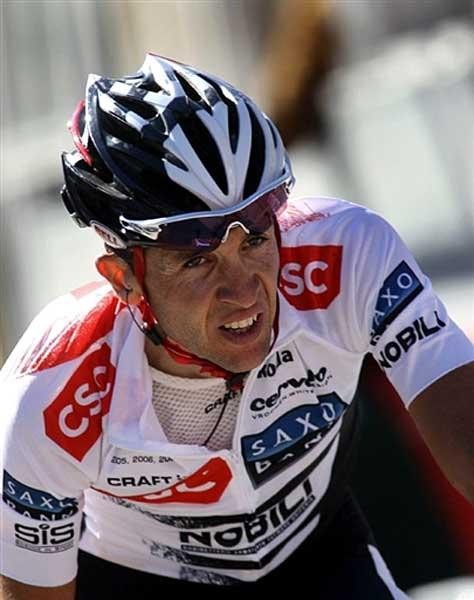
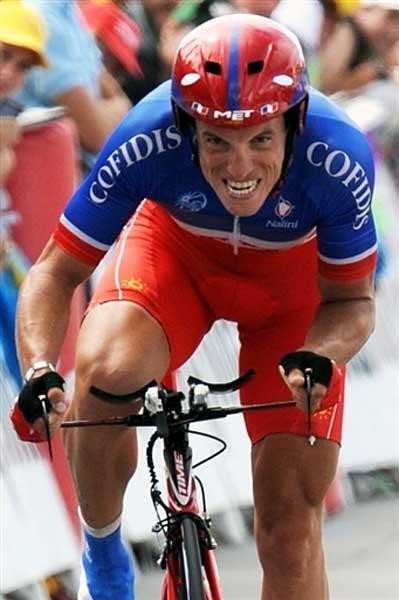
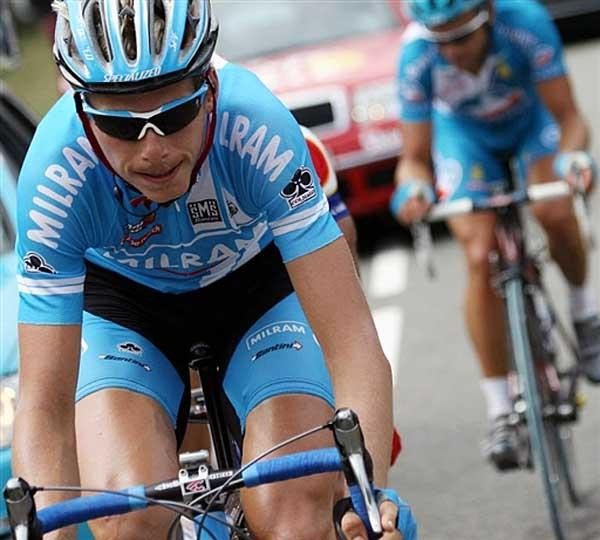
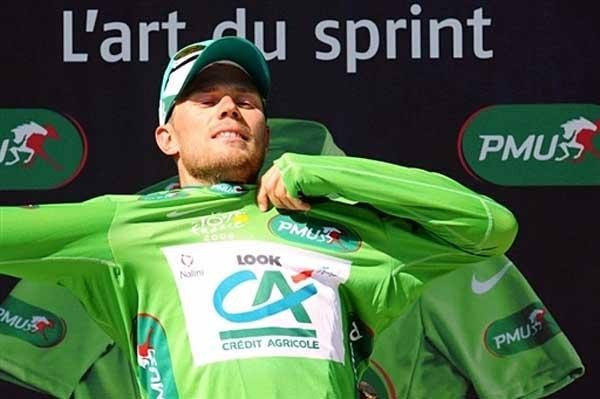
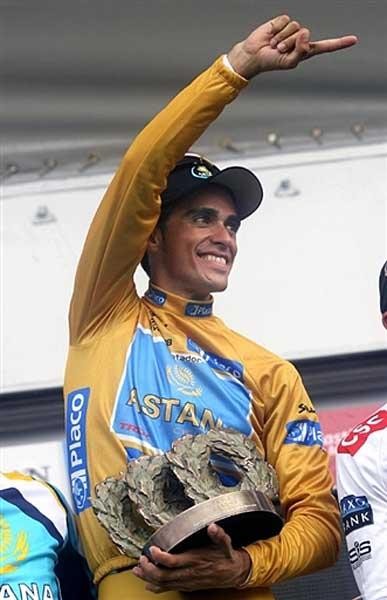
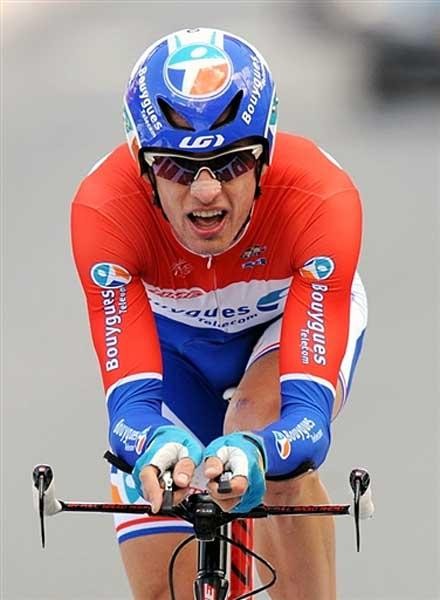
News feature, November 6, 2008
What was the last half of the 2008 season like for the 18 ProTour teams, and how did the whole year turn out? As the Cyclingnews staff asked, "What went right and what went wrong?"
Here is the third and final part of a team-by-team analysis, with the teams listed in no particular order
CSC Saxo Bank
What went right: The biggest target of any team was finally hit by CSC Saxo Bank with Carlos Sastre's victory in the Tour de France. For a while it was uncertain which team member would take yellow to Paris as Fränk Schleck held the jersey at the foot of Alpe d'Huez; but Sastre had it by the top and saw off the challenge from Silenco-Lotto's Cadel Evans all the way to the finish.
Not to be outdone, the team's hero from the spring, Fabian Cancellara, took the time trial at the Beijing Olympics, albeit in the national strip of Switzerland rather than CSC Saxo Bank.
Similar to the mid-term report, the team has secured a new co-sponsor in the shape of a Danish software company for 2009 when it will be know as Saxo Bank – IT Factory.
Get The Leadout Newsletter
The latest race content, interviews, features, reviews and expert buying guides, direct to your inbox!
What went wrong: Besides the Tour de France – and Cancellara's Olympic gold – it's been pretty quiet for the Danish super-team; other major prizes have been pretty few and far between. The team rode a pretty anonymous Vuelta, Sastre's third place could be seen as a success, but you hardly knew he was there most of the time.
The big bad news story though was the linking of Luxembourg champion Fränk Schleck to Operación Puerto's Eufemiano Fuentes, and that he paid over 7,000 euro to the disgraced doctor's Swiss bank account. Currently it's not known whether Schleck will face any long-term sanction over this, but it's certainly not a good situation.
Finally, Tour winner Sastre is leaving the team for the newly formed Cervelo TestTeam, and while the future of the team may lie with other riders, they may miss his experience when it counts.
Holding out for: Carlos Sastre may be gone, but this year may well have been his last chance of Grand Tour success anyway, and the team has a number of other options in that area. With Fränk Schleck currently in limbo over the Fuentes payments it's tough to make too many predictions, but assuming he escapes without sanction, he and brother Andy will be the centrepiece of the team's assault on keeping the Tour in-house. And Fabian Cancellara can surely be relied upon to do his usual thing, with the focus being the Ronde van Vlaanderen next year.
Overall: It can't be denied that the absence of the super-team Astana from key races has worked in CSC Saxo Bank's favour, but as the old saying goes, you can only beat what's put in front of you. A good spring and early part of the summer were not matched by the latter half of the year, but in terms of success, it is difficult to argue with a Tour de France victory.
Cofidis
By Les Clarke
What went right: It was this year's Tour that provided the stage for Cofidis to announce its comeback to the top of the tree, with wins of both Sylvain Chavanel and Samuel Dumoulin that defined the team's season. Dumoulin's triumph in stage three was followed by Chavanel's stage 19 victory, the realisation of a dream for the strong Frenchman.
After a disastrous 2007 season, David Moncoutié re-lived former glories (namely a Tour stage win on Bastille Day) with victory in stage eight of the Vuelta a España. It was the instigator for the 33-year-old to chase the mountains classification, which he did, and came up trumps over countryman Christophe Kern (who will be riding for Cofidis netx year). Moncoutié finished the Vuelta eighth overall, an excellent performance.
What went wrong: Having lavishly praised the efforts of three of Cofidis' riders, it has to be said that the team needs more of its riders to register higher placings on a more consistent basis. Monfort's efforts at the Tour and Moncoutié's Vuelta experience were highlights at Grand Tours, but they need more support from those in red around them. Nick Nuyens' injury and subsequent quiet season, save for a couple of strong stage results in the Vuelta, was a sore spot for Cofidis at a time in the Belgian's career when observers are expecting big Classics performances.
Holding out for: A Grand Tour podium. But with Monfort, Nuyens and Chavanel leaving (among others), next season will be a challenging one for the French team.
Overall: Despite relying heavily on just a few riders, Cofidis should be happy with its season. Before the winter chill had thawed too much, Chavanel took stage six of Paris-Nice, after which he picked up the Spring victories he has threatened to take for several seasons. Wins in Dwars door Vlaanderen and Brabantse Pijl.
Fortune favours the brave, and Chavanel had buckets of it in 2008. It was confirmation of what he's capable of and what French fans have been waiting for over the last few years. A nice little seven out of ten for plenty of guts from the bigger names in the squad.
Milram
By Laura Weislo
What went right: Germany's sole remaining ProTour team picked up a few minor wins in the second half of the season, including the Bayern Rundfahrt via Christian Knees. Their biggest victory came in the 2009 recruitment campaign. After building the team around sprinter Alessandro Petacchi only to fire him for a doping violation, the team will make a much needed transformation thanks to two big-name signings - Gerald Ciolek and Linus Gerdemann from Team Columbia.
With some one-day race power coming from Fabian Wegmann and the Fothen brothers Markus and Thomas, next year's Milram team will be better balanced than it has been since its inception. As long as Gerdemann can stay injury-free, he'll be a strong GC contender, and Ciolek should make good use of Petacchi's former lead-out men.
Maybe in 2009, wins like Andrey Grivko's in the Firenze-Pistoia time trial, Brett Lancaster's win in the Deutschland Tour prologue and Björn Schröder's overall win in the Regio Tour will be just run of the mill results and not the only bragging points of the season.
What went wrong: Aside from a couple of post-Tour criterium wins, Erik Zabel's final season in the peloton was quite the denouement from his heady days of green jersey dominance. Zabel managed to add to his tally of second place finishes in his last German race, the Münsterland Giro, where Columbia's André Greipel denied him the last chance for a victory at home.
Niki Terpstra's crash during the Olympic Games was bad, but on the bright side, it was the only major injury in the team for the second half of the season. However, Terpstra really made it count by breaking both arms at once.
Holding out for: 2009. The team really has nowhere to go but up from their lackluster 2008, but with the demise of the Gerolsteiner team, they'll have the pressure of all of German cycling on their shoulders. After the doping scandals that have plagued the sport, Milram will have to be above reproach.
Overall: The team's new signings gives the team a decidedly German flavour, and even with the departure of Grivko to the new Ukrainian squad ISD Danieli, Milram's prospects are looking better and better. Gone are the days of the one-trick pony sprinter's squad: expect to see Milram closer to the top of the results sheet next season.
Crédit Agricole
By Les Clarke
What do you say about a team that announced earlier this year that it will cease to be after 22 years with the same manager at the helm? Team boss Roger Legeay took the reins of the Peugeot squad and its famous black-white chequerboard jerseys in 1986. It then developed into Z-Peugeot, GAN and Crédit Agricole, supporting the likes of Bernard Hinault, Greg LeMond, Chris Boardman and Stuart O'Grady along the way.
What went right: Thor Hushovd, Simon Gerrans and Sebastian Hinault secured stage victories in two Grand Tours during the year, while Mark Renshaw and Nicolas Roche were both in the mix for a share of the spoils at different races.
Before Legeay's dramatic announcement however, Hushovd won stage two of the Tour de France into Saint Brieuc after a drawn-out sprint, while Gerrans prevailed from a group of three following a soggy 183km as the race headed into Italy. Sebastian Hinault's success in Zaragoza during stage 10 of the Vuelta a España was well-deserved for both rider and team.
What went wrong: In a word: sponsorship. Or the lack of it. Roger Legeay's failure to secure sponsorship beyond the 2008 season was the ultimate in bad news for a team of such strong history.
Holding out for: It seems as though there won't be much to hold out for in 2009 as the team won't exist. Maybe a continuation of Legeay's management career will be the only possibility for next year; the squad's riders have made their way to other outfits and understandably haven't stuck around. There's a possibility Legeay will establish a small French team to contest French Cup races or the like, although nobody is holding their breath for an announcement.
Overall: Given the great results gained by Crédit Agricole's riders throughout 2008, it's difficult to see why sponsorship became an issue for the team. Grand Tour stage wins and prominence at several other ProTour races should equate to a healthy ranking and outlook for the following year but this is obviously not the case.
Astana
By Ben Atkins
What went right: While everyone else was at the Tour de France, Vladimir Gusev was coming in second in the Tour of Austria, to add to René Haselbacher's stage win there. Later in the month, Sergei Ivanov won the Tour de Wallonie in Belgium, but you kind of thought the team would rather be in France.
The season ended as it started when Alberto Contador won the other non-French Grand Tour, the Vuelta a España. He became the first rider to win the Giro and the Vuelta in the same season since Giovanni Battaglin in 1981. Levi Leipheimer's second place emphasised the team's superiority, and the fact that they both beat Tour winner Carlos Sastre into third added fuel to the arguments that Contador would have won the Tour had the team not been excluded.
The season ended pretty strongly too, with Leipheimer's bronze medal in the Beijing Olympic time trial and Janez Brajkovic's second place at the Giro di Lombardia.
Big news for the team this year is that Lance Armstrong will be coming out of retirement in 2009, a major motive being to publicise the worldwide fight against cancer.
What went wrong: All the Vuelta victories in the world could never compensate for the fact that the team was excluded from the Tour de France. Had he been at the start line in Brest, 2007 winner Contador would – barring accident – have been a likely winner, which makes the exclusion all the more galling for the team.
As much as the news of Lance Armstrong's comeback has been greeted with excitement in some circles, his joining of this already Grand- Tour-contender-heavy team complicates matters enormously. All being well, Contador will be tilting at his second Tour de France title next year and the presence of a competitive seven-time winner in his team would be distracting to say the least; especially if he decides it's 2005 all over again.
Alexandre Vinokourov – that name again – is also talking about coming out of retirement, and it shouldn't be forgotten that the sponsors of this team were assembled around him two years ago. No matter how much Johan Bruyneel says there's no place for him here, Vino's fans in Kazakhstan may have other ideas.
Holding out for: The most important thing for this team will be to race a full programme next year, and that means the Tour de France. Many say that Contador would have cruised to victory this year, and he will want to prove that by doing so next.
Lance Armstrong's return is eagerly awaited by many in the sport, especially those who see it as a chance to revitalise the sport in the US that has begun to wane since he retired. Speculation on what and where he'll race – and who for – has begun already and will only intensify as the year goes on.
Overall: As mentioned in the team's first half, this would be a fantastic season for any other team, but missing the Tour – and all other ASO and nearly all RCS Sport races – leaves a big hole in the season of the team of last year's Tour champion.
Other than Contador's Giro and Vuelta, Astana took several other wins and raced every race full gas. Tomas Vaitkus proved to be an exceptional team helper and still managed to win three races. Andreas Klöden won the Tour de Romandie and finished second in the Tour de Suisse.
Bouygues Telecom
By Laura Weislo
What went right: The team of Jean-René Bernaudeau had a few shining moments on French soil in the latter half of the season: Pierrick Fédrigo put in a stunning upset over Alessandro Ballan in the GP Ouest-France Plouay, and Stef Clement eked out a slim victory in the Chrono des Nations in October.
Other than that, the team did little except pick up two strong riders from the now defunct Crédit Agricole team for its 2009 squad: Pierre Rolland, winner of the mountains classification in the Dauphiné Libéré, and William Bonnet, winner of the GP de la Somme and the GP d'Isbergues.
What went wrong: The team just can't win a race that's not in France, and it lost several of its key riders in the end of season transfer party who may have been able to score. Stef Clement, the team's only Dutch rider, will go back home to race for Rabobank. Jérôme Pineau, who put in some promising rides in 2008 which included third place in the first stage of the Tour de France, left for Quick Step.
The team also lost most of its non-French riders: Estonian Erki Pütsep, Swiss Aurélien Clerc and Spaniard Xavier Florencio all depart, leaving the squad with little diversity. Bouygues Telecom did bring in several new riders, but all of them are French: Bonnet, Rolland and a number of French neo-pros - all solid riders, but nobody who will stand out in a ProTour field. Perhaps the team was scared off after trying to sign Tom Boonen only to learn he did cocaine.
Holding out for: Bouygues Telecom doesn't seem to be holding out for anything. From their acquisitions, they appear to be perfectly at peace with being a French team that can win minor races on French soil but don't seem to have any ambitions beyond this. Unfortunately for Bouygues Telecom, the ProTour now has just two French races: the Dauphiné Libéré and Plouay.
Overall: The team had some good moments this year: Yuri Trofimov's overall win in the Etoile de Bésseges and stage in the Dauphiné Libéré was probably the highlight of the season. If Thomas Voeckler learned to attack when it counts instead of doing impersonations of Jacky Durand in every race, he might actually win more often. But overall, the team just didn't stand out this year, and it seems to lack vision, leadership and heart.